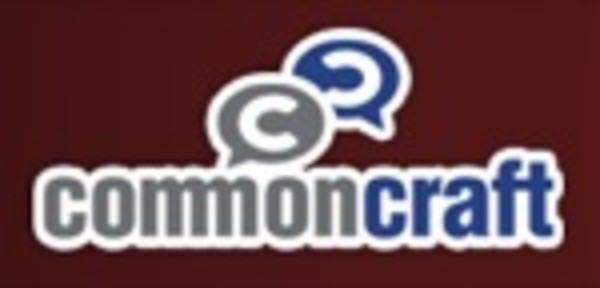Five years ago Lee LeFever was an online community manager for a B2B healthcare company called Solucient. Today, his voice has been heard by millions of people around the world, making strange new applications feel easy to use and offering some of the clearest explanations of how the Internet is changing.

LeFever is the founder of Common Craft and his story is an inspiring one.
He’s gone from social media consulting to co-producing the wildly popular “…In Plain English” video series. Common Craft’s videos have been translated into scores of other languages and landed the company big jobs making custom videos for companies like Google, LinkedIn and MeetUp. Now Lee and his wife Sachi LeFever are making another major work transition. They’ve stopped producing custom videos for clients and have found an interesting new business model.
Editor’s note: Looking back over 2008, there were some posts on ReadWriteWeb that did not get the attention we felt they deserved – whether because of timing, competing news stories, etc. So in this end-of-year series, called Redux, we’re resurrecting some of those hidden gems. This is one of them, we hope you enjoy (re)reading it!

The History of Common Craft
Common Craft started out as a consultancy focused on creating and teaching organizations about online communities. Lee LeFever left his day job and opened up shop in 2003. He blogged prolifically and worked with a number of large clients in the earliest days of social media.
One of his most notable projects was working with consultant Nancy White on the very successful community Share Your Story, a March of Dimes site where parents with children in the neonatal ICU could find support. Share Your Story is still one of the most successful use cases of niche social networking online.

By 2007 the LeFevers began trying something that many social media consultants and trainers try – they began making videos explaining certain tools and trends emerging online. They tried using white boards and other methods but nothing really stood out – until Sachi LeFever thought to put the white board on the ground, cut out some simple cartoon figures and use a stop motion method of animation.
The Common Craft Show was thus born. April 2007 saw the company’s first video in their now famous style, called RSS in Plain English. Though Common Craft’s production skills have improved dramatically as they’ve produced video after video – RSS in Plain English remains the best introduction to RSS on the web.
One month later, Common Craft published a video called Wikis in Plain English.
Two months after this five year old consultancy began producing the simple introductory videos, the LeFevers decided they wanted to dedicate 100% of their time to the series and they stopped doing online community consulting.
Over the next year, Common Craft produced videos for clients, for general interest and for fun on a wide variety of topics. From California School Financing, to the company PR Web, to Zombies in Plain English (not to be confused with the PR Web client video) – the breadth was really impressive.
Hold the Show!
The Common Craft show was a huge success. Inquiries from clients were coming fast and furious, the company saw between five and ten inquiries for custom videos every day. Why have Lee and Sachi decided to stop making custom videos then? We asked them and this is what they told us.

“This was a perfect fit for us – we could work from home, make a good living and work on fun projects with interesting companies and people. And it’s been a blast. But soon we started to look at the possibilities. A few things were clear:
- Custom videos do not scale. We would have to hire people to grow the company and we don’t want to hire. We are a two person company.
- Custom videos are usually promotional. We are more comfortable with education than promotion. Another realization is that promotion is fad-driven and education isn’t as much. We see a longer lifespan for our videos in education.
- Our goal is independence – we want to work for our own goals on our own schedule and maintain a lifestyle that supports us.”
Those sound like great reasons to ditch a business model that was working. In this new economy online, it’s pretty interesting when a business stops doing something that was already making good money.
What Now?
What is Common Craft going to do instead of making themselves available for hire making custom videos? Lee says that for the past year they’ve been getting requests three or four times a week for permission to re-use their Plain English videos. The solution they decided on was licensing them for corporate and eductional use.
Common Craft now sells licenses for high-quality, downloadable versions of their explanatory videos. All of their time working is now spent building out the library. Videos are licensed for under $20 for individual use and $350 for site-wide use, like on a company intranet. Commercial licensing, for use on public commercial websites, is the next option the company will be offering.
Of course the video content is available free to anyone online, but Common Craft says that many companies feel far more comfortable paying for official permission to use high quality, unbranded versions. There’s certainly no DRM involved. “People want to do the right thing if they know the rules,” Lee LeFever says. “Our challenge is to educate people about how we expect our videos to be used. We’re lucky to have fans that feel good about supporting us with their purchases. Given limited resources, we would rather spend time educating people on the right thing to do than trying to make the wrong things impossible.”
Fortunately, all the social media work the company has done has put them in a place of great prominence regarding the issues they tackle. People love their videos, so they get a lot of links and have excellent search engine ranking.
Above: A very humorous satire of Common Craft and all things Web 2.0.
When the Common Craft Store opened in April, the first video sold within two hours. Last month, video licenses were bought by individuals and organizations in nine countries around the world. The LeFevers report that their customers include Fortune 500 tech, chemical and services companies, school districts and Universities, government agencies, individual consultants and educators.
The store isn’t operating in the black yet, but it is covering their business expenses and “a nice chunk of our living expenses.” We hope Common Craft can go all the way and support themselves fully with this work. An ad-free business model, developed by two independent creatives, is very inspiring.
Though the videos seem simple, each one takes days to prepare. The hardest part of making them, Lee LeFever says, is really nailing down clear, effective explanations of these concepts. It’s a powerful skill set that Lee and Sachi bring to an interesting new market.
We love the fact that there are enough people willing to pay for this kind of content that Common Craft has decided to make it their sole business strategy. We’ve written here about the most awesome freelance producers of custom screen casts we know but when the LeFevers told us they’d left those ranks we were very curious to hear the details about what they are doing next.
We think their story can inspire anyone who dreams of making a living doing good work and exploring new ways to do business on a changing Internet.










